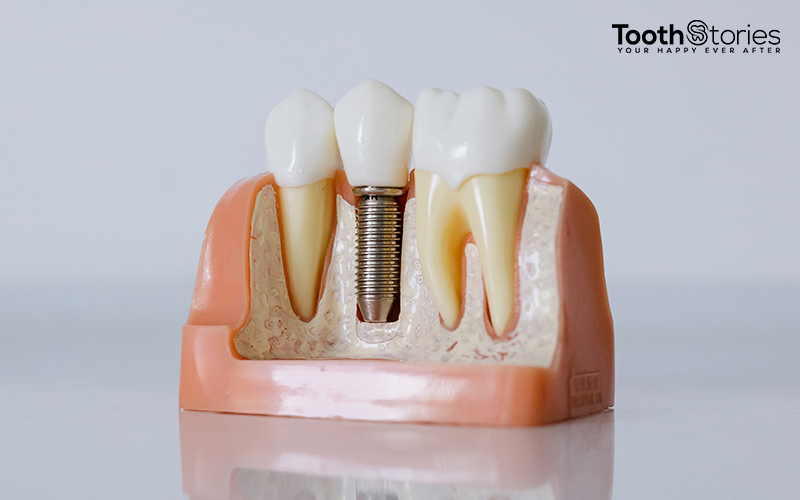
What to Expect When Getting Dental Implants
Placing dental implants is an experience that can be both exciting and nerve-wracking. Whether you’re replacing a missing tooth or considering a full set of implants, understanding the process can help alleviate any concerns and prepare you for what lies ahead. In this guide, we’ll walk you through the various stages of getting implants, from the initial consultation to the crucial follow-up care, helping you approach the procedure without fear.
Learn More – Dental Implants vs Dentures: Which Should You Choose?
1. Initial Consultation and Examinations
Your dental implant experience begins with an initial consultation with a qualified dentist who will assess your oral health, discuss your medical history, and evaluate whether you are a suitable candidate for dental implants. X-rays and 3D imaging may be taken to get a comprehensive view of your jaw structure and identify potential challenges.
This consultation is also an opportunity for you to ask questions and express any concerns you may have. The dentist will work with you to create a personalised treatment plan tailored to your specific needs.
2. Preparatory Procedures
Before the actual implant surgery, some patients may require preparatory procedures to ensure the success of the implantation. This can include bone grafting or sinus augmentation to enhance the quantity and quality of bone in the implant site. These procedures help create a solid foundation for the implants and improve the chances of successful osseointegration.
Although the surgery may add some time to your overall treatment plan, they are crucial for the long-term success of your dental implants.
3. Implant Placement Surgery
The day of placement surgery marks a significant step in your journey. The dental implantation procedure is typically performed under local anaesthesia, ensuring your comfort throughout. The dentist will carefully place the implant, a small titanium post, into the jawbone at the predetermined location.
The surgery itself is relatively quick for a single implant, but the duration may vary depending on the complexity of your case. After the placement, there may be some initial discomfort, swelling, or bruising, which can be managed with prescribed medications.
4. Osseointegration
Once the implants are in place, a critical phase called osseointegration begins. In this crucial stage, the bone perfectly integrates with the titanium implant, creating a strong and stable foundation for the artificial tooth. Osseointegration can take several weeks to a few months, and during this time, it’s extremely important to follow post-operative care instructions provided by your dentist.
Patients are advised to stick to a soft diet and avoid putting excessive pressure on the implant site during this period. Regular check-ups will be scheduled to monitor your progress and ensure everything is proceeding as planned.
5. Abutment Placement
After successful osseointegration, the next step is the placement of abutments. Abutments are small connectors that attach to the implants and serve as a base for the final restorations. The dentist will reopen the gum tissue to expose the implants and attach the abutments securely. Impressions of your teeth are then taken to create custom-made crowns or prosthetics that will be attached to the abutments.
6. Restoration Placement
With the abutments in place, the final step is the placement of the dental restorations. Whether you’re getting a single crown, bridge, or a full set of implant-supported dentures, the restorations are crafted to match the colour, shape, and alignment of your natural teeth. The result is a seamless and aesthetically pleasing smile.
7. Follow-Up Care
Your dental implant journey doesn’t end with the placement of the restorations. Regular follow-up appointments are essential to ensure the long-term success and health of your dental implants. Your dentist will monitor the condition of your implants, assess your oral hygiene routine, and address any concerns you may have.
Maintaining good oral hygiene is key to prevent complications such as gum disease, which can jeopardise the stability of your dental implants. Regular check-ups and professional cleanings should also be scheduled to keep your implants in optimal condition for years to come.
Getting dental implants is a transformative process that involves several stages, each playing an important role in the success of the treatment. From the initial consultation to the follow-up care, understanding what to expect at each step can help you approach the journey with confidence and achieve the lasting benefits of a healthy, functional, and beautiful smile.
Ready to start a new chapter in your dental health? Schedule an appointment with Tooth Stories, a friendly dental clinic in Singapore and let us script a story of a radiant, healthy smile for you. Whether you’re in need of routine check-ups, cosmetic enhancements, or restorative procedures, our team is here to provide personalised and compassionate care.
